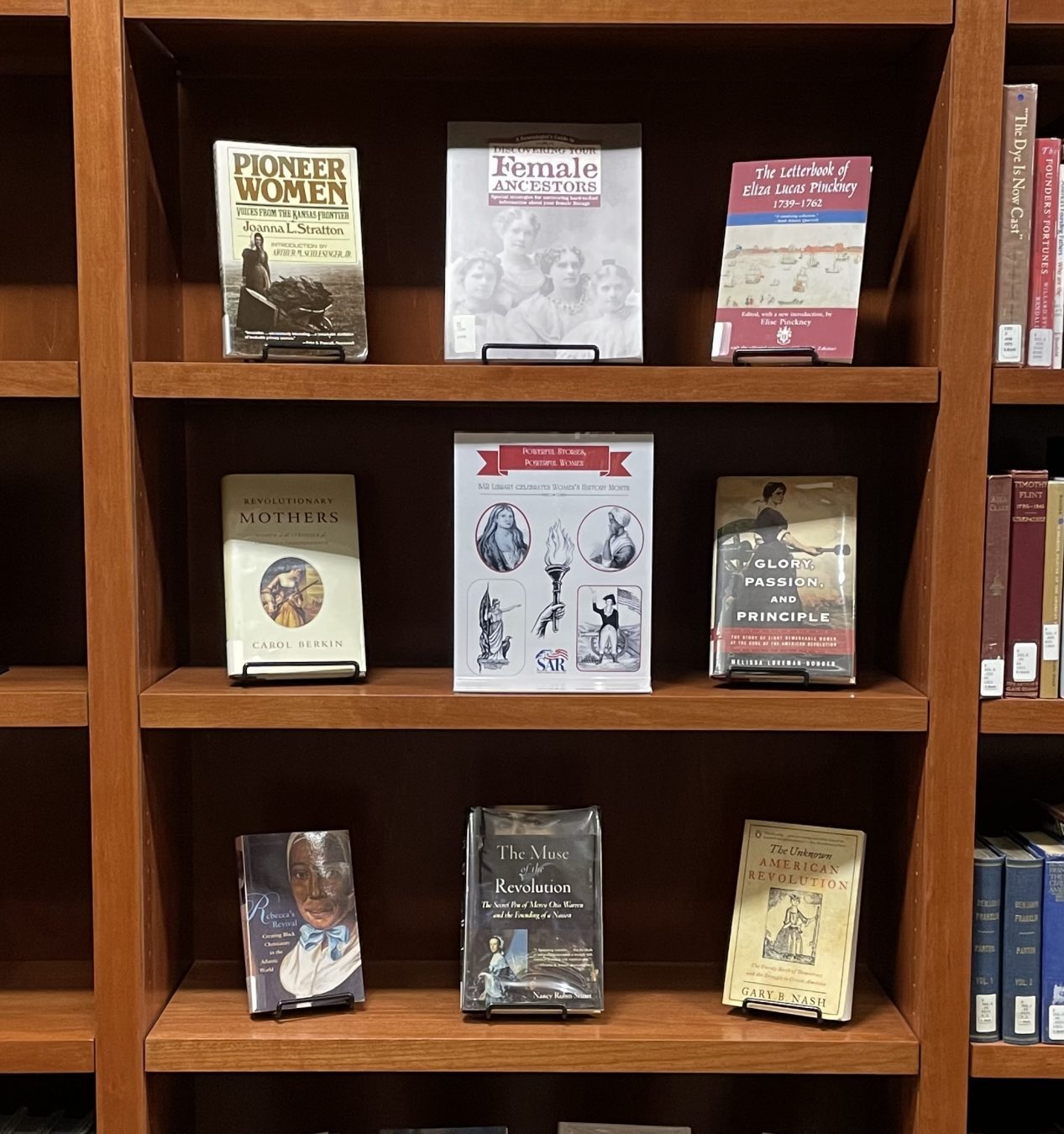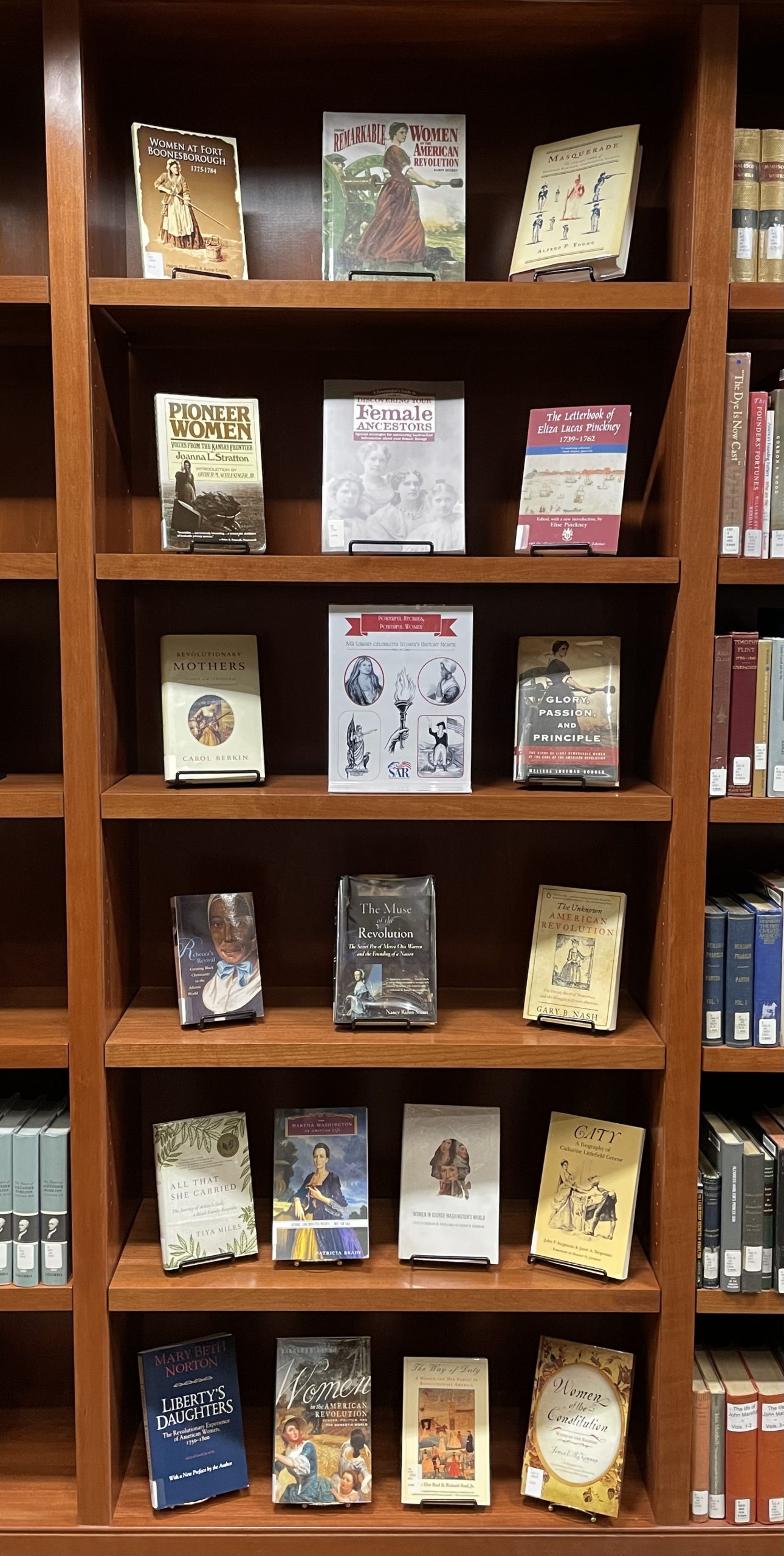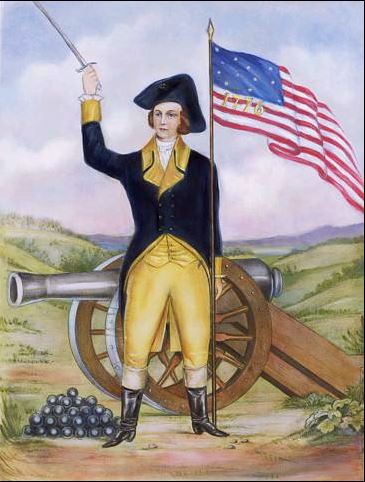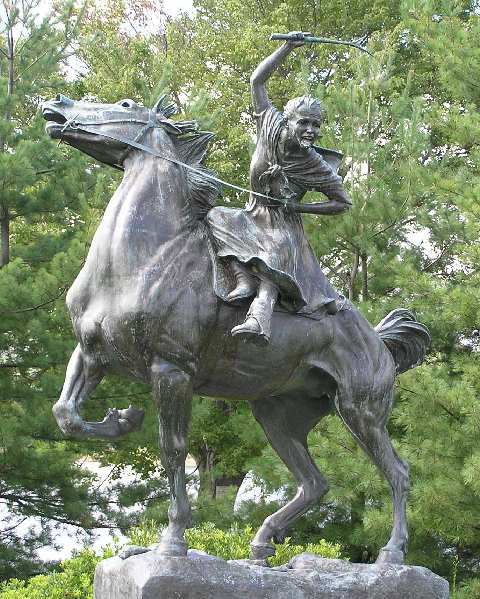
Powerful Stories, Powerful Women: Celebrate Women's History Month with the SAR Library
 It’s that time again! The SAR Library has created a new display of titles celebrating Women’s History Month, which starts on March 1st. On this day in history, three women in Salem Massachusetts were arrested, marking the beginning of what we know today as the Salem Witch Trials.
It’s that time again! The SAR Library has created a new display of titles celebrating Women’s History Month, which starts on March 1st. On this day in history, three women in Salem Massachusetts were arrested, marking the beginning of what we know today as the Salem Witch Trials.
History has shown the determination and strength of many women: Cleopatra, who raised an army to take back the throne of Egypt from her brother; Boudicca, who fought against the invading Roman armies; and Joan of Arc, who defied tradition and fought in the siege of Orleans. The power these women exemplified is evident in the stories they’ve left behind.
American history is riddled with many of its own courageous and powerful women; many of whom had an involvement in the American Revolution.
Here are a few of these remarkable women:

Deborah Sampson, a.k.a. Robert Shurtleff, (1760-1827):
In 1782, Deborah Sampson, a teacher and self-educated woman, disguised herself and enlisted in the Fourth Massachusetts Regiment under the name of Robert Shurtleff. Her service included the scouting of neutral territories, leading expeditions, and confrontations with Tories. In order to escape detection after being shot in the leg, Sampson dug the bullet out herself. After nearly two years in service, her true identity was discovered after falling into an illness which caused her to lose consciousness at a hospital. Despite being discharged after her cross-dressing had been discovered, Sampson was the only women to earn a full pension for her service in the Revolution.

Sybil Ludington – (1761-1839):
While many know the story of Paul Revere’s infamous ride, few know that there was another. On April 26, 1777, Sybil Ludington rode forty miles through a rainstorm to give warning to residents of Putnam County, New York that the British were on their way. While British may have been successful in their raid, Ludington’s efforts were instrumental in helping to drive back the British forces.

Nanye’hi (Nancy Ward), (1738 – 1822(24)):
Born to the Cherokee nation in 1738, Nanye’hi (later Nancy Ward after her marriage to Bryan Ward) was a diplomat and warrior. At the age of seventeen, she accompanied her first husband to the Battle of Taliwa, and later lead the Cherokee people to victory after his death. For this, she was honored with the title of Ghigau (Beloved Woman). Throughout the American Revolution, Nanye’hi offered support and aid to the rebel colonists against the British by warning them of incoming attacks and even freeing some from captivity. She was a figure in ongoing negotiations between her people and the Americans, and helped negotiate the Treaty of Hopewell in 1785.
But Wait, There’s More!
Below is a selection of additional titles in our collection worth taking a peek at!
- Famous American Women
- Following the Drum: Women at the Valley Forge Encampment
- Women of the American Revolution: Lost Voices of America’s First Generation
- Courageous Kate: a Daughter of the American Revolution
- Women of ’76
- Fearless Martha: A Daughter of the Revolution
- Southern Women in Revolution, 1776-1800: Personal and Political Narratives
- Petticoat Patriots of the American Revolution
- Women in the American Revolution
- George Washington’s beautiful Nelly : the letters of Eleanor Parke Custis Lewis to Elizabeth Bordley Gibson, 1794-1851
- Never caught: the Washingtons’ Relentless Pursuit of Their Runaway Slave, Ona Judge
- Out of the Shadows: a History of Bullitt County Women
- While One Hand Rocked the Cradle: a Celebration of Mishawaka Women
- Associated Daughters of Early American Witches: Roll of Ancestors
